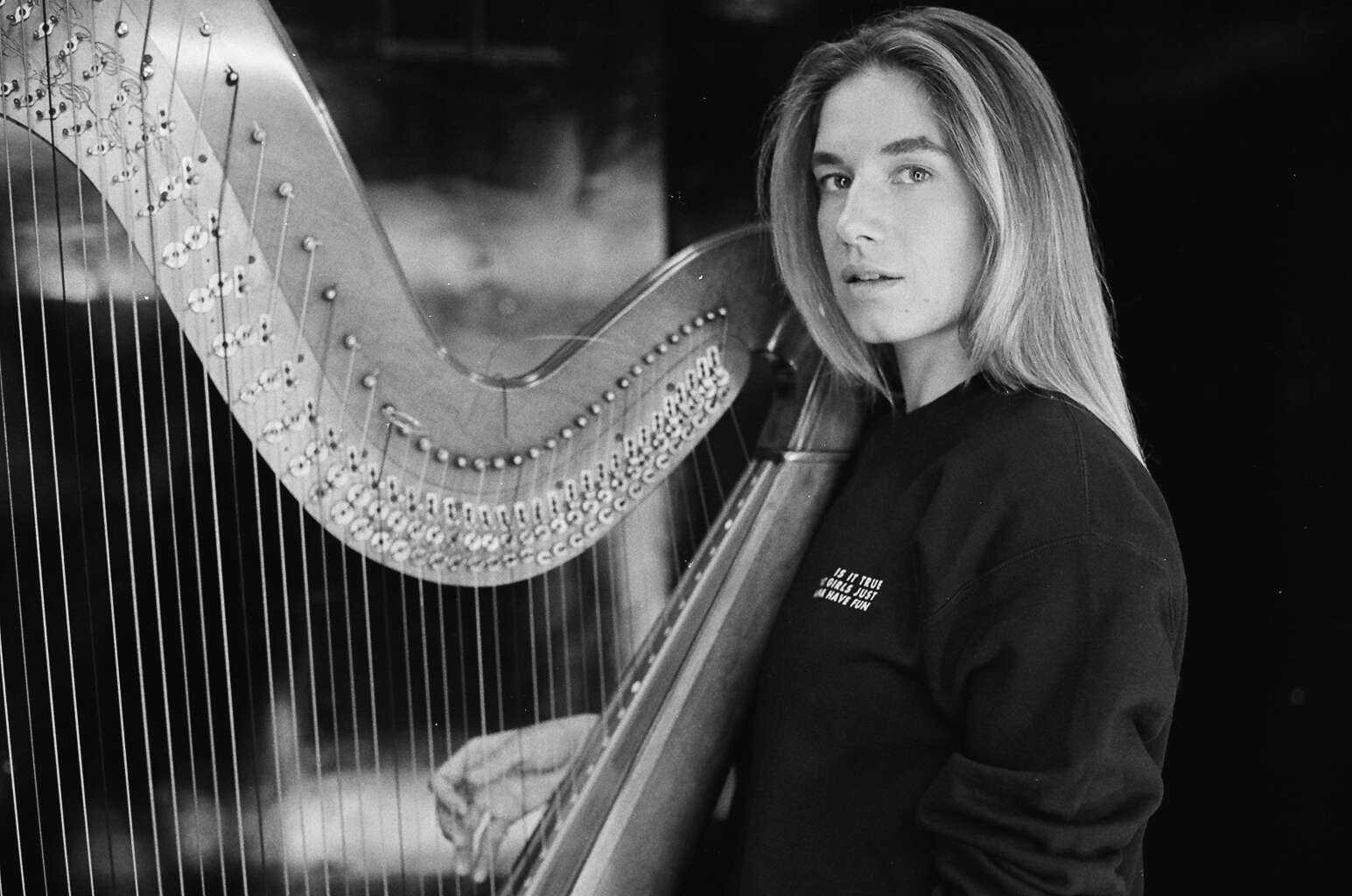
Sissi Rada, also known as Sissi Makropoulou, is a multifaceted artist who navigates the realms of both classical and electronic music with finesse. Hailing from Greece, Sissi has carved a distinctive niche for herself with her unique blend of ethereal vocals, innovative soundscapes, and fearless approach to genre-defying musical exploration. In transitioning into electronic music, Sissi Rada melds classical sensibilities with electronic approaches, incorporating songwriting techniques across the majority of her work.
Hi Sissi. How are you? What have you been up to?
Hello there! I’m writing to you from hot Toulouse, in the middle of a very exciting SHAPE+ residency with organist Loriane Llorca and chef Céline Gambini. We’re working on a multi-sensory concept in which our music will be translated into food. Here in Toulouse, we’ve also had the chance to meet up with another SHAPE+ Alumni: Oï les Oxes. She and her class at the Isdat (the Toulouse School of Fine Arts) will create a piece of their own out of our live recording. After this, I’m heading for Paris and Sweden to perform a totally different project called “EVEN” with another SHAPE+ Alumni—and my beloved husband—Jay Glass Dubs. So the roots and fruits of SHAPE+ are rich!
You’ve been navigating the worlds of both classical and electronic music. What led you to transcend the structured and rigid world of classical music and enter the relatively freeform world of electronic music?
I think I would’ve felt very alone if I’d followed only one path instead of two. A professor who taught advanced harmony at the conservatory once said: a good piece of music is like a pendulum that settles right in the middle between expression and form. Striking a balance between these two seemingly opposite principles—not only in music, but in everyday life—sounds like a recipe for happiness. All classical masterpieces were conceived with a sense of freedom in them, and all electronic ones carry a certain structural rigidity. So I try to learn from good music, regardless of its genre, reminding myself that all is one.
You’ve collaborated with some notable musicians, including Brian Eno and Lee “Scratch” Perry. Can you talk about these collaborations and what you took from them?
Brian is someone with a genuine consciousness of the world. He embodies the archetype of the homo universalis, a pan-artist, and an ideal citizen of the Earth. I remember him saying that he tries to read every night before going to sleep, even when he’s tired. That, to me, is an amazing way of practicing form in everyday life.
As for Lee “Scratch” Perry, I played on his last record five years ago. I remember arriving at a studio that had the ambience of a pagan church. The sessions took place in the kitchen—sticks were burning, chants to Jah were sung, papayas were served… It all felt like a cult initiation. Again, there was a rigid form, a framework that held us tightly so we could improvise freely.
You also compose music for chamber music ensembles, and your work has been performed across the world. How do you approach composing when much of the hands-on music-making is left to others, as opposed to performing it yourself?
I’m always happier when others perform my music, because I’m sure they’ll do it better.
What has inspired you lately?
Lately, I’ve found motivation in the liberating realisation that I simply hate my era! The experience of performing and communicating one’s work has changed in ways that feel alienating, almost joyless. This reality has motivated me to seek new avenues for playing music. So, I’ve been happily working on a new project in the field of music therapy, which will be launched soon.
You’re based in Athens. How is the music scene there? Which projects, spaces, or initiatives are worth highlighting?
I think what draws people to Athens is a friendly climate coupled with an overarching atmosphere of hopelessness. You meet the kindest, sunniest people imaginable, who also seem to vehemently distrust everything about their country. This paradox has always been a magnet for artists. It’s hardship—not abundance or equal opportunity—that sparks artistic expression, (here I go again, talking about how awful things are actually great!).
But to answer your question: I don’t think we can talk about a scene in Athens. For a scene to establish itself, you need some kind of systematic foundation, whether it’s government welfare or simply camaraderie. That’s how scenes developed in London and Berlin. That’s how Brian Eno became an artist. It was public funding that enabled him to start experimenting with different forms of art after he left school. In Greece, however, state programmes that support the arts—especially in the realm of underground music—are virtually nonexistent. The reasons for this are historical and very interesting, but that’s a conversation for another time. Recently I heard Slavoj Žižek saying that happiness thrives in countries where citizens have someone to blame. That reassured me that we must all be very happy in Athens. Come join us!
Interview Lucia Udvardyova
Photo A.Vouts M.Koropoulis